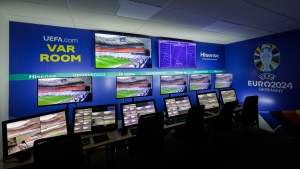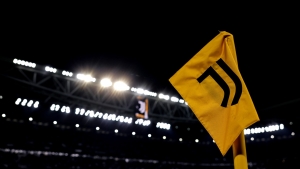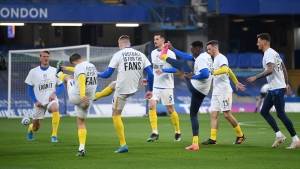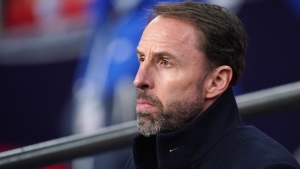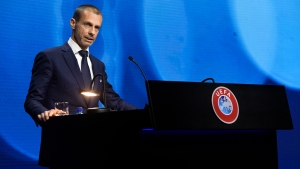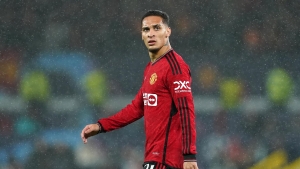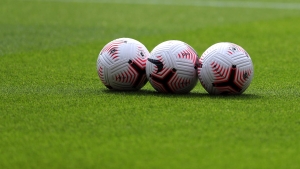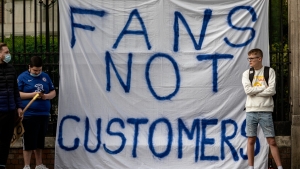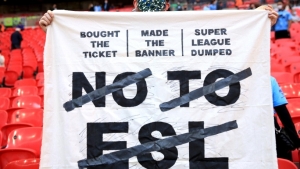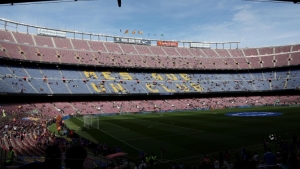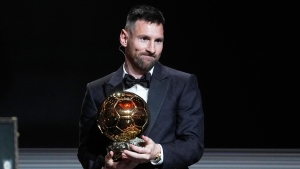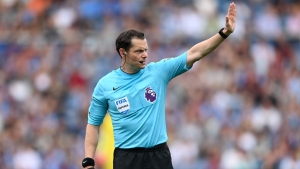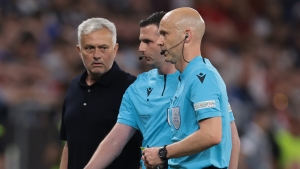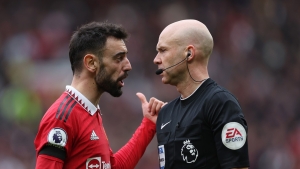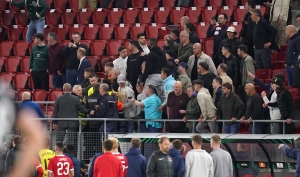Former FIFA referee Duarte Gomes has leapt to the defence of VAR amid the furore surrounding Liverpool's Premier League defeat to Tottenham, calling the technology's introduction "the best thing to happen to football".
The use of VAR is a hot topic in the English top flight again after Luis Diaz was incorrectly denied a goal in Liverpool's 2-1 loss to in-form Spurs.
Darren England – the VAR official on duty at the time – misunderstood the on-field call to chalk the goal off for offside, inadvertently clearing an incorrect decision.
Liverpool have reacted furiously to the incident, which played a part in their first defeat of the season, with boss Jurgen Klopp suggesting the game should be replayed on Wednesday.
However, Gomes – a retired Portuguese referee who officiated in FIFA and UEFA competitions between 2002 and 2016 – says the ability of those using the technology is the issue, not the technology itself.
Speaking to Stats Perform at the Thinking Football Summit, Gomes admitted officials were still adapting to the technology but said it had already righted "thousands" of incorrect decisions.
"I don't have the slightest doubt that it's the best thing that's happened to football and to referees for decades," Gomes said.
"I know that we have a big, long way to run yet. It's not perfect, far from that. People who work with VAR are also learning and they are focused always on their careers as a referee on the pitch.
"The process of decision-making was completely different, and then you put them in a room with many screens and tell them to decide in a different way they have to adjust.
"As with everybody, there are some people who have more competence than others. We are now on that trail to try to be there.
"Nevertheless, in factual decisions, let's say, for example, offsides or with goal-line technology, I believe that around the world, thousands and thousands of goals have been saved or cancelled correctly after VAR.
"So yes, it's good for football. It's a Ferrari, you just have to have the right driver to be there.
"I've made many mistakes with the human eye; penalties, decisions, yellow or red cards, things that I missed. VAR could help me a lot. I would have been a better referee if I had it."
Gomes also believes, however, that technology cannot become all-invasive in football, emphasising the need to preserve the emotional nature of the sport.
"I'm a little concerned about AI in the future, of course also in refereeing matters. I believe it will have an important role," he added.
"Sitting here right now, I don't know if I will have a different way of thinking in 10 years. We are always adjusting, but I believe technology should always help until the point that humans decide.
"Human first, technology after, not the other way around because football is for people. It's played for people, with people, and refereed with people, and that's what gives the emotion.
"If you become very technological, it's very difficult to have an emotional sport and then it will lose many of its values, so yes, technology is always to help, not as a substitute for the referee."
Gomes also feels the rise of social media has had a major impact on the levels of abuse received by officials. In a high-profile incident from last season, Roma boss Jose Mourinho was given a four-match ban by UEFA for angrily confronting referee Anthony Taylor after his team lost the Europa League final.
"I believe it's getting worse because social media gives the right to everybody to criticise, especially the ones who didn't do it with a public voice before," he said.
"Football is a social phenomenon and it's unique because it can put you in a very emotional state, sometimes an irrational state, which is worse.
"You cannot ask people to be reasonable when they have their emotions so strongly attached to their teams and their competitions.
"Sometimes you have to let the balloon go down a little bit and then ask them for some tolerance again. Nobody wants to hear the explanation of law one or law two, [but] you have to do it slowly, you have to try and try."























